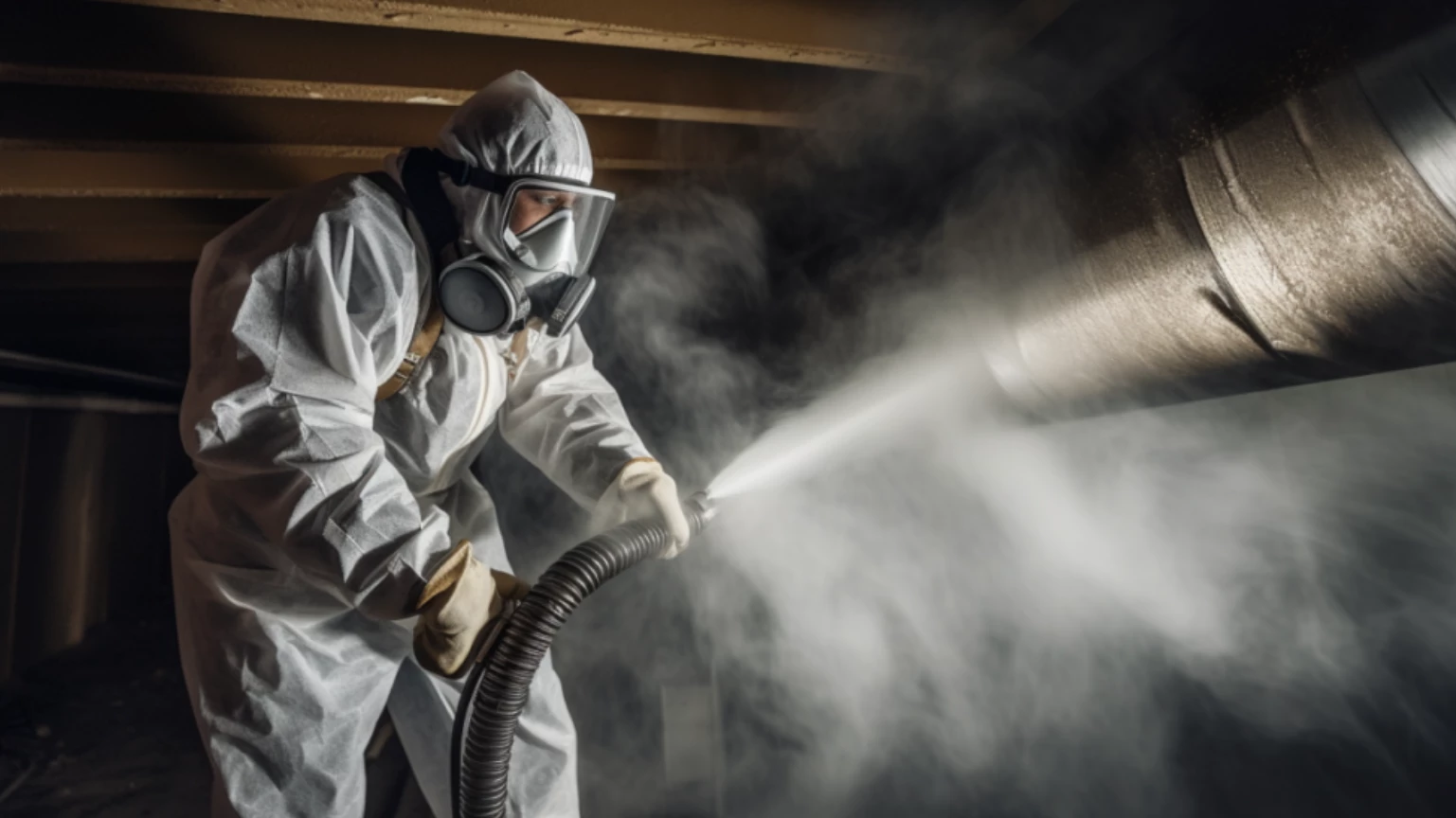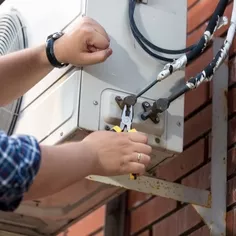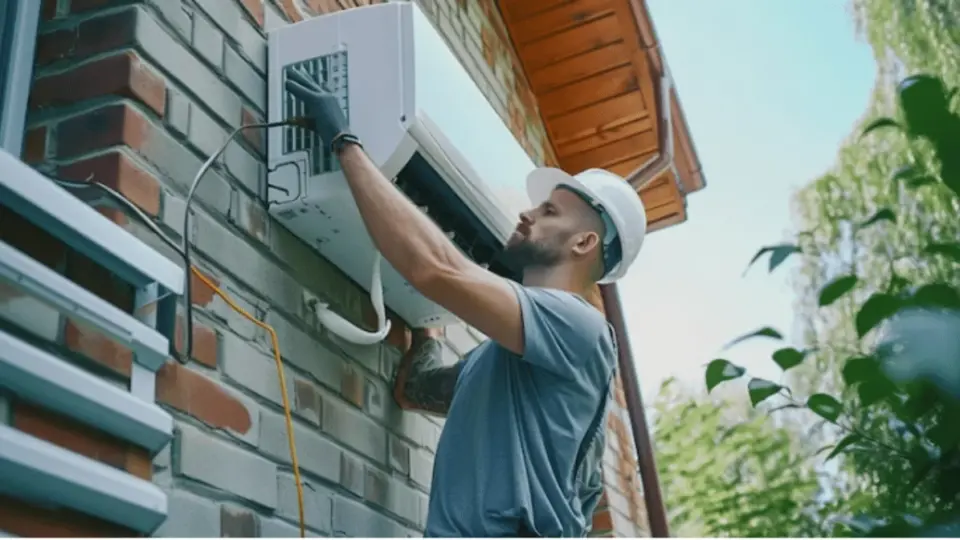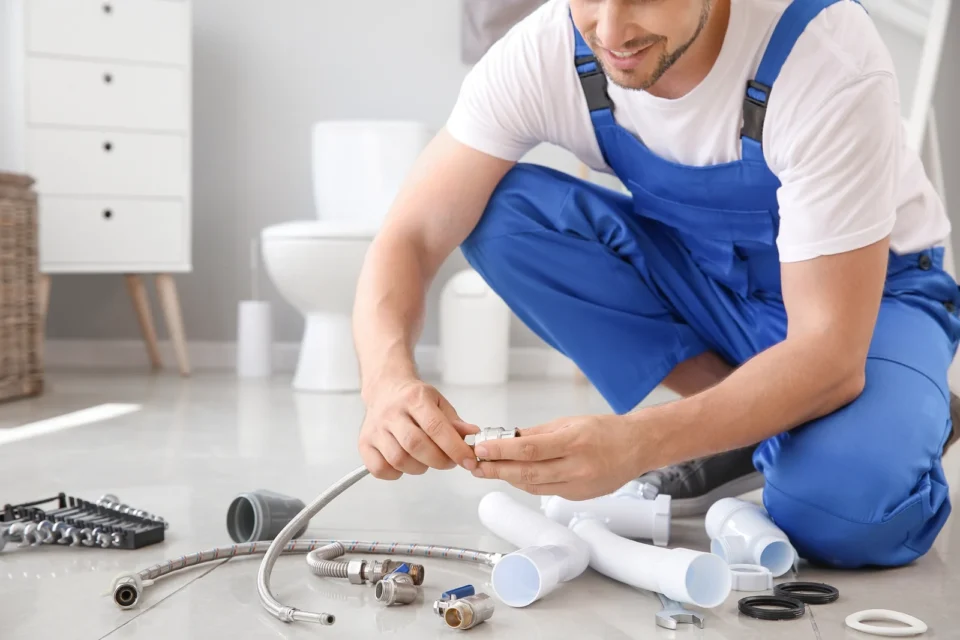Investing in air purity and efficiency through professional cleaning services not only offers numerous benefits for homeowners and businesses but also provides a sense of security. Dust, grime, pollen, and other impurities build up in HVAC systems, lowering indoor air quality and efficiency.
Professional cleaners remove material from air ducts, filters, coils, and other components to improve air quality and system performance. By regularly cleaning, property owners can significantly reduce health hazards, including allergies, respiratory difficulties, and discomfort from poor indoor air quality, thereby ensuring a healthier and safer environment.
How do air purity investments impact long-term cleaning expenses?
Investing in air purity measures can significantly impact long-term cleaning expenses by reducing the frequency and extent of necessary cleaning services. Property owners can minimize the accumulation of dust, dirt, and debris over time by implementing measures to improve indoor air quality and prevent the buildup of contaminants in HVAC systems. This reduction in airborne pollutants translates to less frequent cleanings required to maintain optimal system performance and air quality.
Additionally, investments in air purity can address the root causes of indoor air pollution, such as inadequate ventilation, filtration, and system maintenance. By targeting these underlying issues, property owners can effectively mitigate the sources of contamination and reduce the need for intensive cleaning services in the future.
For example, installing high-efficiency air filters, implementing regular maintenance schedules, and improving ventilation systems can all contribute to cleaner indoor air and less reliance on costly cleaning interventions.
By taking a proactive approach and investing in air purity measures, property owners can enhance indoor air quality and system efficiency and minimize long-term cleaning expenses associated with HVAC maintenance. By addressing the root causes of contamination and implementing preventive measures, property owners can feel empowered, knowing that they are in control of their indoor environment. They can also significantly reduce the frequency and extent of professional cleaning services required to maintain optimal system performance.
What are the primary factors influencing efficiency in air purification systems?
Several primary factors influence efficiency in air purification systems:
- Filtration Technology: The type of filtration technology used plays a significant role in the efficiency of an air purification system. High-efficiency particulate air (HEPA) filters are widely considered one of the most effective filtration methods for capturing airborne particles, including dust, pollen, pet dander, and other allergens. Activated carbon filters are also commonly used to adsorb odors, gasses, and volatile organic compounds (VOCs) from the air.
- Airflow Rate: The airflow rate, or the volume of air that can pass through the purification system per unit of time, directly impacts its efficiency. Higher airflow rates allow the system to process larger volumes of air more quickly, improving overall air purification effectiveness. However, balancing airflow rate with filtration efficiency is essential to ensure optimal performance.
- Coverage Area: The size of the area the air purification system is designed to cover is another critical factor influencing efficiency. Systems with more extensive coverage areas are more effective at purifying larger spaces, while smaller systems may be better suited for smaller rooms or confined spaces. Matching the system’s coverage area to the space size is essential for maximizing efficiency and achieving desired air quality levels.
- Maintenance: Regular maintenance and filter replacement are essential for maintaining the efficiency of air purification systems over time. Dirty or clogged filters can restrict airflow and reduce filtration effectiveness, compromising overall system performance. Following manufacturer recommendations for filter replacement intervals and performing routine maintenance are essential for ensuring optimal efficiency and longevity of the system.
- Additional Features: Some air purification systems have features designed to enhance efficiency and effectiveness. These may include UV-C light technology for sterilizing airborne pathogens, ionization to neutralize odors and pollutants, and air quality sensors to adjust purification settings based on detected pollutants automatically.
By considering these primary factors influencing efficiency, property owners can select air purification systems that effectively meet indoor air quality needs while maximizing energy efficiency and performance.
Can investing in air quality control reduce overall maintenance costs?
Yes, investing in air quality control measures can help reduce overall maintenance costs in several ways:
- Preventative Maintenance: Air quality control measures, such as regular HVAC system maintenance and air purification, can help prevent the buildup of contaminants in heating, ventilation, and air conditioning (HVAC) systems. Property owners can minimize the risk of equipment breakdowns and costly repairs by keeping HVAC systems clean and well-maintained, thus reducing maintenance expenses over time.
- Extended Equipment Lifespan: HVAC and other building systems can last longer with better indoor air quality. Dust, grime, and debris accelerate HVAC component wear and failure, requiring replacement. Property owners can extend equipment life and avoid premature replacements by minimizing pollution and cleaning systems.
- Reduced Downtime: Poor indoor air quality can cause health difficulties, absenteeism, and business disruptions. Air quality control techniques can improve interior air quality and reduce sick days and employee complaints. Property owners may minimize downtime costs by supporting a productive and comfortable workplace.
- Lower Energy Costs: Air quality control can boost HVAC energy efficiency, lowering utility expenditures. Clean HVAC systems use less energy to heat and cool indoor spaces. Air purification systems increase airflow and ventilation by removing impurities, saving energy and money.
Air quality controls can reduce maintenance expenses, equipment lifespan, downtime, and energy costs. Indoor air quality improves building health and comfort while lowering maintenance and operating expenses.
What is the correlation between air quality enhancements and operational efficiency in businesses?
Air quality enhancements can significantly positively correlate with operational efficiency in businesses. Here’s how:
- Employee Health and Productivity: Improved indoor air quality boosts staff health and productivity. Poor indoor air quality results in allergic reactions, respiratory troubles, headaches, and weariness, increasing absenteeism and decreasing productivity. Air quality improvements make workplaces healthier, lowering sick days and boosting employee performance.
- Reduced Downtime: Better indoor air quality can reduce downtime due to illness or employee discomfort. Healthy and comfortable employees are likelier to remain at work and perform their duties effectively. This reduces the need for temporary staffing, overtime pay, and disruptions to business operations, leading to greater operational efficiency and continuity.
- Enhanced Cognitive Function: Research shows that indoor air quality improves cognition and decision-making. Clean air with adequate humidity and decreased contaminants can help employees think, concentrate, and make better decisions. This is especially useful in corporate settings that require critical thinking and problem-solving.
- Customer Experience: Air quality improvements can boost consumer satisfaction. Clean, fresh air in retail stores, restaurants, hotels, and other enterprises can make customers feel welcome and encourage them to stay longer, buy, and return. Comfortable and pleasurable surroundings boost client satisfaction and loyalty, boosting business growth and profitability.
The correlation between air quality enhancements and operational efficiency in businesses is substantial. By improving indoor air quality, companies can enhance employee health and productivity, reduce downtime, improve cognitive function, and enhance the overall customer experience, leading to greater operational efficiency and success.
Boost Efficiency Invest in Air Purity Today!
Elite Air & Heat, LLC offers tailored solutions to enhance indoor air quality and maximize operational efficiency for your business. Our expert team specializes in implementing comprehensive air purification systems and HVAC maintenance plans to remove contaminants, improve airflow, and optimize energy efficiency.
Investing in air purity measures can create a healthier, more comfortable work environment, reduce maintenance costs, and increase productivity. Trust in our expertise to provide customized solutions that meet your unique needs and elevate the overall performance of your business. Contact us today to enhance air purity and boost efficiency in your workplace!
Boost Efficiency Invest in Air Purity Today!
Elite Air & Heat, LLC offers tailored solutions to enhance indoor air quality and maximize operational efficiency for your business. Our expert team specializes in implementing comprehensive air purification systems and HVAC maintenance plans to remove contaminants, improve airflow, and optimize energy efficiency.
Investing in air purity measures can create a healthier, more comfortable work environment, reduce maintenance costs, and increase productivity. Trust in our expertise to provide customized solutions that meet your unique needs and elevate the overall performance of your business. Contact us today to enhance air purity and boost efficiency in your workplace!




